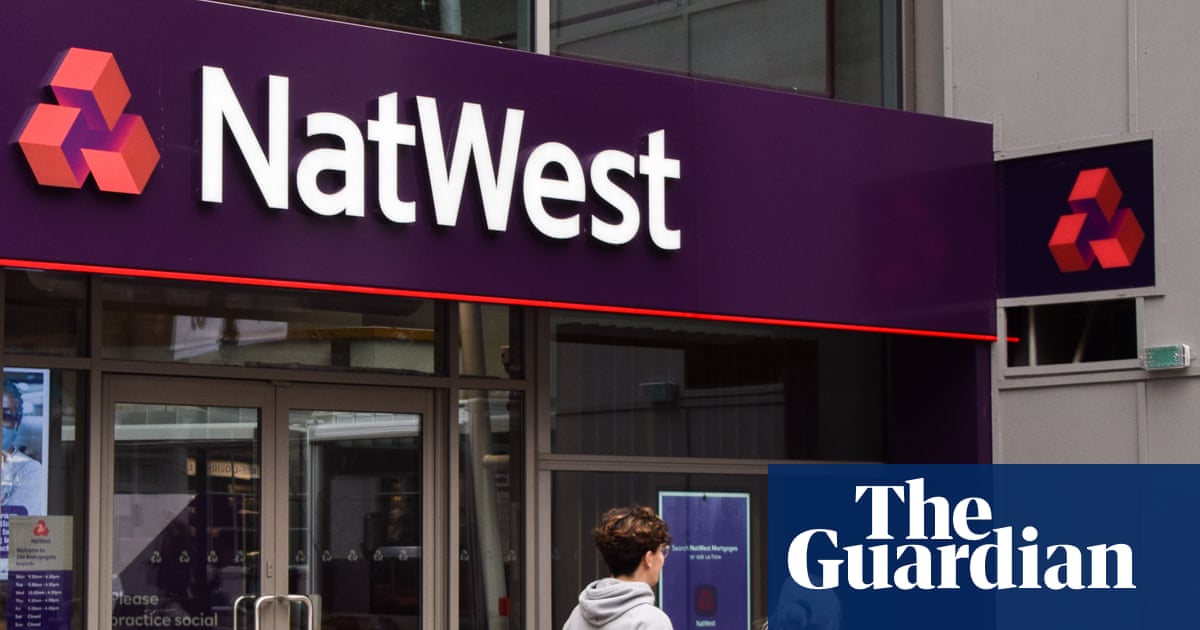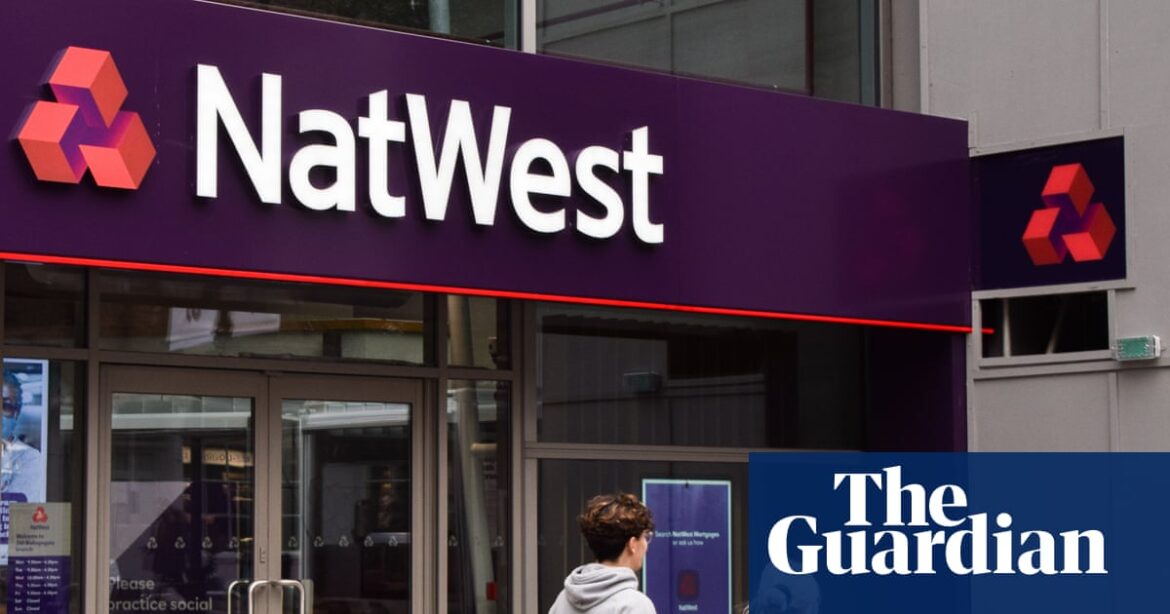
NatWest has reported a 36% increase in profits in the first three months of this year as the government reduced its stake in the bank to less than 2%, paving a return to fully private ownership after 17 years.
The bank reported operating profit before tax of £1.8bn, up from £1.3bn in the same period last year, beating analyst consensus forecasts by £200m.
Paul Thwaite, the NatWest chief executive, said that the strong performance meant the bank expected to hit the upper end of its guidance on income and shareholder returns this year.
The strong results come as the government moved to reduce its stake in NatWest to 1.98% on Thursday.
Last year the government shareholding fell by almost three-quarters, from 38% at the end of 2023 to just under 10% in December, through a combination of two direct buybacks by NatWest and a rapid sell-off.
The Treasury spent almost £46bn to bail out NatWest, then known as Royal Bank of Scotland, at the height of the financial crisis in 2008. The resulting nationalisation left taxpayers owning about 84% of the lender.
Last month, Rick Haythornthwaite, the chair of NatWest, thanked UK taxpayers for the bank’s bailout, assuring shareholders that bosses had “fixed the issues of the past” and would not “open up floodgates of risk” despite government pressure.
Separately, Standard Chartered also reported a strong first quarter, with profits up 10% to $2.2bn (£1.65bn). However, the London-based bank warned of the potential impact of US tariffs as it reported a credit impairment charge of $219m in the period, up 24% year on year, as signs of trade tension affected credit quality.
“We delivered a strong performance in the first quarter of 2025,” said Bill Winters, the chief executive of the bank. “The subsequent imposition of trade tariffs has increased global economic and geopolitical complexity, and we remain watchful of the external environment.
after newsletter promotion
On Thursday, Lloyds revealed a 7% slide in first-quarter profits to £1.5bn, mainly because of higher costs and impairment charges as it set aside £309m to account for possible bad debts amid the worsening global economic situation. That figure included a £35m net charge to prepare for the possible impact from Donald Trump’s tariffs.
Earlier in the week, HSBC reported a 25% fall in first-quarter profits, mainly owing to the same period last year benefiting from the proceeds of the sale of its banking business in Canada and its entire division in Argentina. The bank also warned of the impact of tariffs, reporting a $200m rise in expected credit losses to $900m in the first quarter.
Source: theguardian.com



